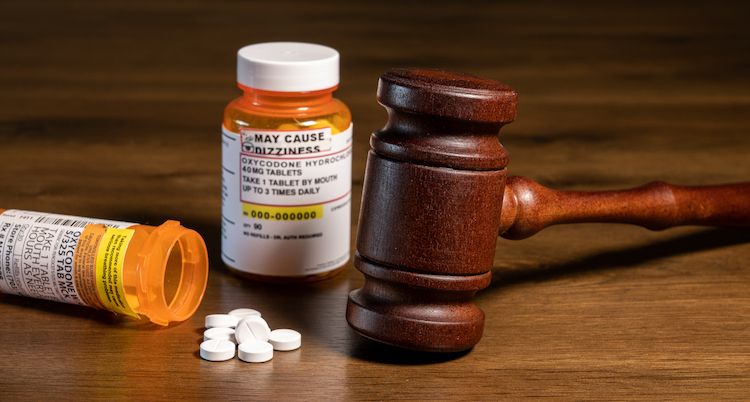Afternoon Briefs: Proposed $26B opioid settlement revealed; Florida judge reprimanded for noise response

Image from Shutterstock.com.
Proposed $26B opioid settlement disclosed
Four companies involved in making and distributing opioids have disclosed a proposed $26 billion settlement that would end thousands of lawsuits by state and local governments. The proposal is $4 billion higher than an earlier offer that was met with resistance. The four companies are distributors McKesson, Cardinal Health and AmerisourceBergen and opioid manufacturer Johnson & Johnson. They are accused of downplaying addiction risks and failing to monitor suspicious orders. (The New York Times, Law.com, the Washington Post)
Florida judge reprimanded for noise response
A Florida judge will be reprimanded for his response to noisy courthouse visitors in January. Judge David C. Miller of Miami’s 11th Judicial Circuit was accused of waving his arms and shouting at the visitors in the courthouse lobby. He also allegedly threatened one lawyer in the crowd with contempt when she shook her head. In its approval of the reprimand, the Florida Supreme Court said it doesn’t excuse Miller’s conduct, but the crowd should not have disrupted judicial business. (The Daily Business Review, the Legal Profession Blog, Law360, the Florida Supreme Court’s Nov. 5 opinion)
Lawyer is charged in staged accident probe
New Orleans personal injury lawyer Danny Patrick Keating Jr. has been charged with conspiracy to commit mail and wire fraud in an alleged scheme to stage auto accidents and defraud insurers. Keating, 51, is the first lawyer charged in the case; he joins 32 other defendants facing charges. (NOLA.com, WDSU 6 News, Department of Justice press release)
Judge orders disclosure of PPP loan information
A federal judge in Washington, D.C., has ordered the Small Business Administration to disclose which businesses got funds through the Paycheck Protection Program and how much money they received. U.S. District Judge James Boasberg of the District of Columbia ruled that exceptions to public records law did not apply. The Small Business Administration has released information on loan recipients receiving more than $150,000 but not the companies that received less. (The National Law Journal, ProPublica, the Nov. 5 decision)
Write a letter to the editor, share a story tip or update, or report an error.


